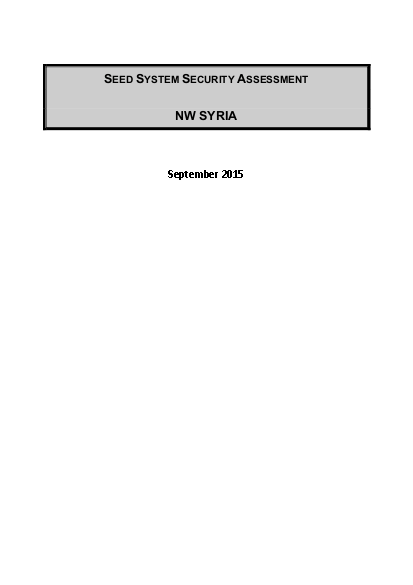
This report presents the results of a Seed System Security Assessment (SSSA) conducted in NW Syria in September 2015. The assessment looked at the structure and functioning of seed systems that farmers use and investigated the availability, accessibility, and quality of seed on offer. The SSSA compared the current seed system to that which existed in 2010 prior to start of the armed conflict. The SSSA also reviewed in detail seed system operations for the prior two seasons, summer 2015 and winter 2014-15 season, as well as any upcoming needs for the 2015-16 winter season.
The overall purpose of this SSSA was to help farmers and humanitarian actors better plan for activities that could support seed system function and, hence, agricultural production in the short and medium term. Relief efforts focusing on agriculture in NW Syria can serve the dual purpose of supporting livelihoods of smallholder farmers and contributing to wider food security and nutrition across the region.
The assessment unfolded in five geographical areas of NW Syria: north of Aleppo; west of Aleppo; south of Aleppo and east of Idlib; west of Idlib; and south of Idlib and north of Hama. These areas were selected due to their importance in agricultural production both regionally and nationally, and because partner NGOs had an established presence, ongoing agricultural activities, and relatively secure and consistent access to farming communities. Together, seven national and international non-governmental organizations (NGOs) conducted the SSSA.
Note that this fieldwork was completed late September 2015, just days before the airborne campaigns started in NW Syria. The humanitarian situation on the ground has changed significantly in the intervening months. While many of the field findings still hold (as they are linked to chronic stress and ongoing needs), others might require updated verification.